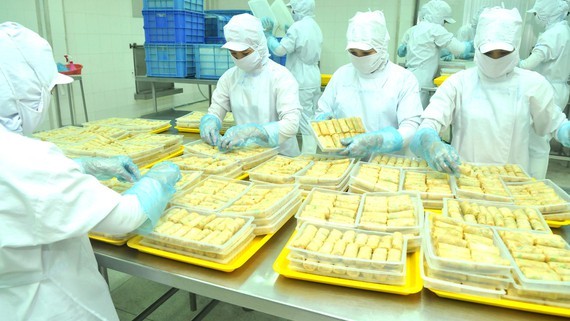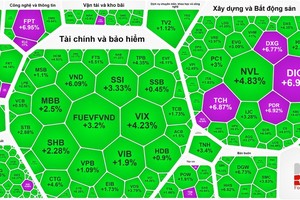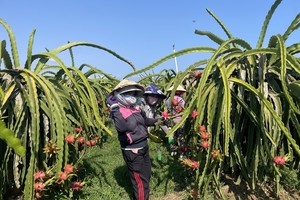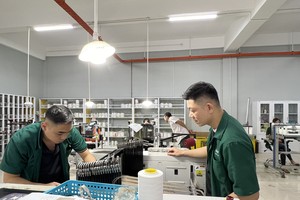
Mr. Pham Xuan Hong, chairman of Saigon 3 Garment Company, said that 60 percent of materials for the garment and textile industry in general and the company in particular is imported from China. The long lasting epidemic has forced many factories in China to shut down and threaten material supply source of many businesses in Vietnam.
Companies said that they could maintain production until the end of March, some will be able to hold out until June if the supply of substitute materials is stable.
The situation is more nervous in the leather and footwear industry. Mr. Nguyen Chi Trung, chairman of Gia Dinh Company, said that before Tet holiday, the company had imported materials enough for production until the first quarter this year. However it is unclear about material supply source for the following months. In the worst case, the company might be forced to import materials from other markets such as South Korea, Japan and Bangladesh with the price double or triple those from China and higher transport fee.
Amid the complicated epidemic which is in danger of further spreading in many nations, material production countries will give supply priority to their businesses. Hence material shortage is likely to be severer in the upcoming time.
Expectation of food processing
Estimating the current situation, economic experts said that businesses especially newly established ones will face lots of challenges in 2020 as the epidemic has greatly affected tourist industry and export. Hence supply chains should be quickly established and maintained, this is a very important solution which should be on focus.
Businesses themselves should step up connectivity to improve domestic material supply chains and reduce pressure on import materials. Authorized agencies should clear obstacles in administrative procedure as well as land fund and give incentives to attract businesses to material production.
Local authorities and authorized agencies should focus on developing some industries with likely breakthrough growth rates such as online shopping, goods delivery, auto manufacturing and food processing. Of these online shopping and food processing are two most potential ones.
According to Infocus Mekong Research, e-commerce accounted for 5 percent of retail value in 2019. For the last three months, about 76 percent consumers do shopping online at least once a week. E-commerce is expected to reach the growth rate of 20 percent a year. Meantime, food processing posts the average growth rate of over 10 percent a year, it is forecast to top 20 percent in 2020 with rocketing consumption demand for the last three months.
Mr. Pham Thanh Kien, director of the Department of Industry and Trade, enterprises who are in the need of promoting production investment especially in food processing, one of four major industries of the city, will be eligible for getting assistance in investment capital up to VND200 billion (US$8.6 million) with the interest rate of only 7 percent in seven years.
Recently the Government has required localities to re-plan material zones for agricultural and seafood products and synchronously implement preferential measures on taxes, land and investment capital to lure farm produce and seafood processing firms to Vietnam.
























